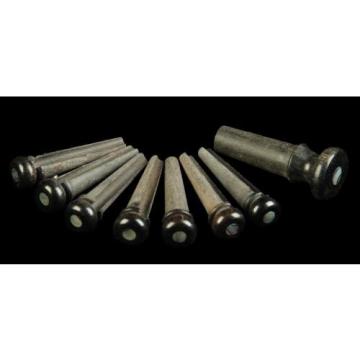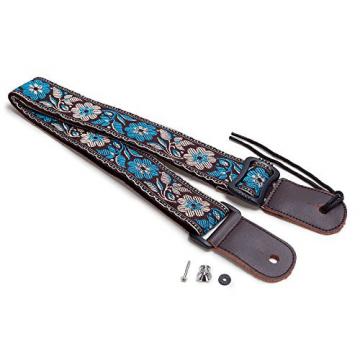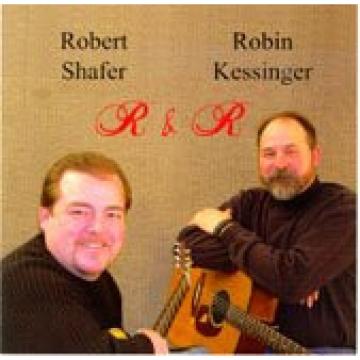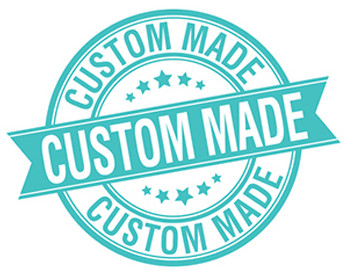Home> Company News> Finding the Best Deals: A Guide to Buying Used Martin Guitars
- AddressShan Dong Province,China
- Factory AddressShan Dong Province,China
- Phone(Working Time)86-13305315989
- Phone(Nonworking Time)86-13305315989
Finding the Best Deals: A Guide to Buying Used Martin Guitars
2023-05-08 10:51:16When considering purchasing a Martin guitar, one of the options that many musicians may explore is buying a used guitar. Used Martin guitars offer several advantages and disadvantages that should be considered before making a purchase.
One of the primary advantages of buying a used Martin guitar is the potential for cost savings compared to buying a new guitar. Depending on the age, condition, and rarity of the guitar, a used Martin guitar can often be purchased for significantly less than its new counterpart. For musicians who are on a tighter budget, a used Martin guitar can offer an opportunity to own a high-quality instrument without breaking the bank.
Another advantage of buying a used Martin guitar is the availability of vintage and rare models. Martin has been producing guitars for over 180 years, and their extensive history means that there are many older models that are highly sought after by collectors and enthusiasts. Purchasing a used Martin guitar can provide access to these vintage and rare models that may not be available as new instruments.
However, there are also several potential disadvantages to consider when buying a used Martin guitar. One major disadvantage is the risk of hidden damage or needed repairs. A used guitar may have been subjected to years of wear and tear, and the previous owner may not have disclosed or even been aware of any potential issues with the guitar. This can result in unexpected expenses for repairs or restoration that can quickly add up.
Another disadvantage of buying a used Martin guitar is the risk of purchasing from unreliable sources. Scams and fraudulent sellers are a common occurrence in the used guitar market, and it can be difficult to ensure the authenticity and condition of the guitar before making a purchase. It's essential to thoroughly research the seller and inspect the guitar before making any commitments.
Ultimately, the decision to buy a used Martin guitar depends on the individual musician's preferences and needs. While the potential cost savings and access to vintage and rare models can be attractive, the risks of hidden damage and scams should also be taken into consideration. By carefully weighing the advantages and disadvantages, musicians can make an informed decision when purchasing a used Martin guitar.

Tips for Finding the Best Deals on Used Martin Guitars
Buying a used Martin guitar can be a great way to save money while still getting a high-quality instrument. However, finding the best deals on used Martin guitars can be a challenge. Here are some tips to help you find the best deals on used Martin guitars:
-
Research different models and prices: Before you start looking for used Martin guitars, do some research on the different models and their prices. This will give you a better idea of what to expect when you start shopping.
-
Check online marketplaces and classified ads: Online marketplaces like eBay and Craigslist can be a great place to find used Martin guitars. You can also check classified ads in your local newspaper or on websites like Reverb.
-
Attend guitar shows and auctions: Guitar shows and auctions can be a great place to find rare and vintage Martin guitars. You can also often find good deals at these events.
-
Consider purchasing from reputable dealers or collectors: If you want to be sure that you are getting a high-quality used Martin guitar, consider purchasing from a reputable dealer or collector. They will often have a large selection of guitars to choose from, and they can also provide you with information about the guitar's history and condition.
-
Inspect the guitar thoroughly before purchasing: Before you buy a used Martin guitar, make sure to inspect it thoroughly. Look for any cracks, dents, or scratches, and check the neck and fretboard for wear. You should also test the guitar to make sure it sounds good and is easy to play.
By following these tips, you can find the best deals on used Martin guitars and get a great instrument for a fraction of the cost of a new guitar.
Inspecting a Used Martin Guitar: What to Look For
When considering purchasing a used Martin guitar, it is important to inspect the instrument thoroughly for any damage or wear that may affect its playability or value. Here are some key factors to consider when inspecting a used Martin guitar:
-
Check for cracks, dents, and scratches: Examine the guitar's body, neck, and headstock for any visible damage. Look for cracks in the wood, especially around the soundhole or neck joint. Dents and scratches on the body can affect the guitar's appearance, but they may not necessarily impact its sound quality.
-
Inspect the neck and fretboard for wear: Check the neck for any warping or twisting, which can affect the guitar's playability. Look at the frets to see if they are worn down or if there are any sharp edges that could cause buzzing or discomfort while playing.
-
Check the tuning machines and hardware: Make sure the tuning machines are functioning properly and turning smoothly. Check the bridge and saddle for any signs of wear or damage, and inspect the nut for any cracks or chips.
-
Play the guitar to test for sound quality and playability: Play a few chords and scales to see how the guitar sounds and feels. Listen for any buzzing or rattling that could indicate a problem with the frets or hardware. Pay attention to how the guitar feels in your hands, including the weight and balance.
-
Look for signs of previous repairs or modifications: Check for any repairs or modifications that may have been made to the guitar. Look for signs of glue or other adhesives, which could indicate previous repairs. Check for any replaced hardware or parts, which could affect the guitar's value.
By taking the time to thoroughly inspect a used Martin guitar before purchasing, you can ensure that you are getting a high-quality instrument that will meet your needs and provide years of enjoyment.
Negotiating the Price of a Used Martin Guitar
Negotiating the price of a used Martin guitar can be a tricky process, but with the right approach, you may be able to get a great deal on a high-quality instrument. Here are some tips to keep in mind when negotiating the price of a used Martin guitar:
-
Know the market value of the guitar: Before you begin negotiating, it's essential to do your research and determine the market value of the specific Martin guitar you are interested in. This will give you a baseline price to work from and help you to avoid paying too much for the instrument.
-
Point out any flaws or needed repairs: When inspecting the guitar, make note of any flaws or needed repairs. If the guitar has any visible damage or issues, such as a cracked top or worn frets, bring these up during the negotiation process. This will give you leverage to negotiate a lower price.
-
Consider the seller's asking price and budget constraints: While you don't want to pay more than the guitar is worth, it's important to consider the seller's asking price and budget constraints. If the seller needs to make a quick sale or has a pressing need for cash, they may be willing to negotiate a lower price.
-
Don't be afraid to walk away from a deal: If you can't come to an agreement on the price, don't be afraid to walk away from the deal. There are plenty of used Martin guitars available on the market, and you may be able to find a better deal elsewhere.
-
Consider the value of any included accessories or cases: When negotiating the price, consider the value of any included accessories or cases. If the guitar comes with a high-quality case or other accessories, this can add to the overall value of the instrument.
By following these tips, you can negotiate the price of a used Martin guitar with confidence and potentially save a significant amount of money. Remember to always do your research and inspect the guitar thoroughly before making an offer.
Avoiding Scams and Counterfeit Martin Guitars
When buying a used Martin guitar, it's important to beware of scams and counterfeit guitars. These fraudulent guitars are often made to look like the real thing, but are usually made with inferior materials and workmanship. Here are some tips to help you avoid scams and counterfeit Martin guitars:
-
Research the seller and check reviews: Before buying a used Martin guitar, research the seller and check reviews from previous customers. Look for reviews on the seller's website, social media pages, and other online forums. This will give you an idea of the seller's reputation and the quality of the guitars they sell.
-
Ask for detailed photos and documentation: Ask the seller to provide detailed photos of the guitar, including the serial number and any other identifying marks. You should also ask for any documentation that the seller has, such as a certificate of authenticity or proof of purchase.
-
Beware of deals that seem too good to be true: If a used Martin guitar is priced significantly lower than its market value, it may be a sign of a scam or counterfeit guitar. Be cautious of deals that seem too good to be true and do your research before making a purchase.
-
Inspect the guitar in person before purchasing: If possible, it's always best to inspect the guitar in person before making a purchase. This will allow you to check for any signs of wear, damage, or repairs that may not be visible in photos.
-
Purchase from reputable sources or authorized dealers: To reduce the risk of buying a counterfeit Martin guitar, it's best to purchase from reputable sources or authorized dealers. These sellers have a reputation to uphold and are less likely to sell counterfeit guitars.
By following these tips, you can reduce the risk of buying a counterfeit Martin guitar and ensure that you are getting a genuine instrument with the quality and craftsmanship that Martin is known for.

Restoring and Maintaining a Used Martin Guitar
Once you have acquired a used Martin guitar, it is important to properly maintain and care for it to ensure its longevity and optimal performance. Depending on the condition of the guitar, it may also require some restoration work. Here are some tips and options for restoring and maintaining a used Martin guitar:
Basic Maintenance and Care Tips:
Regular cleaning and polishing: Use a soft cloth to wipe down the guitar after each use and polish it with a guitar-specific polish to keep the finish in good condition.
Humidification: Keep the guitar in a humidity-controlled environment to prevent it from drying out and developing cracks. Use a guitar-specific humidifier if necessary.
String changes: Replace the strings regularly to maintain the guitar's tone and playability.
Storage: Store the guitar in a case or on a stand to protect it from dust and damage.
Repairs and Restoration Options:
Neck adjustment: Over time, the neck may develop a bow or become warped, affecting the guitar's playability. A professional guitar technician can adjust the truss rod to correct this issue.
Fretwork: Worn or damaged frets can cause buzzing or intonation issues. A guitar technician can re-fret the guitar or perform other fretwork as needed.
Bridge repair or replacement: The bridge may become loose or damaged over time, affecting the guitar's intonation and sound. A guitar technician can repair or replace the bridge as needed.
Pickup installation: If the guitar does not have a pickup or the existing pickup is not functioning properly, a new pickup can be installed to allow for amplification.
DIY vs. Professional Repair Services:
Some basic maintenance tasks, such as string changes and cleaning, can be done at home with the right tools and knowledge. However, for more complex repairs or restorations, it is recommended to seek the services of a professional guitar technician. Attempting to do repairs or restorations yourself without proper knowledge or tools can cause further damage to the guitar.
Cost and Time Considerations:
The cost of restoring a used Martin guitar will depend on the extent of the repairs or restorations needed. Basic maintenance tasks such as string changes and cleaning are relatively low cost, while more extensive repairs such as re-fretting or bridge replacement can be more expensive. It is important to budget for these costs when purchasing a used guitar.
The time it takes to restore a used Martin guitar will also vary depending on the extent of the work needed and the availability of a professional guitar technician. Some repairs may be done quickly, while others may require several days or weeks to complete.
Properly maintaining and restoring a used Martin guitar can bring it back to life and provide years of enjoyment. By taking care of the guitar and addressing any necessary repairs, you can ensure that it continues to sound and play its best.
The Best Used Martin Guitars for Different Budgets
When buying a used Martin guitar, it is essential to inspect the instrument thoroughly to ensure that it is in good condition and worth the investment. Here are some key things to look for when inspecting a used Martin guitar:
-
Check for cracks, dents, and scratches: These are common signs of wear and tear on a guitar, and while some cosmetic damage is expected, excessive damage can affect the guitar's sound and playability.
-
Inspect the neck and fretboard for wear: Check the neck for any warping or bowing, and examine the fretboard for signs of wear and tear, such as worn frets or uneven wear patterns.
-
Check the tuning machines and hardware: Make sure the tuning machines turn smoothly and hold tune, and check the condition of the bridge, saddle, and nut.
-
Play the guitar to test for sound quality and playability: This is perhaps the most important step when inspecting a used Martin guitar. Play the guitar to assess its sound quality, tonal characteristics, and overall playability.
-
Look for signs of previous repairs or modifications: Check for any signs of previous repairs or modifications, such as replaced hardware or repaired cracks. While some repairs are inevitable on a used guitar, excessive repairs can affect the guitar's value and playability.
By inspecting a used Martin guitar thoroughly, you can ensure that you are investing in a high-quality instrument that will provide years of enjoyment and musical inspiration.
Used Martin Guitar Reviews and Ratings
If you're considering buying a used Martin guitar, it's important to do your research and read reviews and ratings from different sources. This can help you get a better understanding of the guitar's quality, condition, and overall value. Here are some sources of reviews and ratings for used Martin guitars:
-
Online Marketplaces: Online marketplaces such as Reverb and eBay often have customer reviews and ratings for used guitars. These reviews can provide valuable insights into the condition and playability of the guitar, as well as the seller's reliability and communication.
-
Guitar Forums: Guitar forums such as The Gear Page and Harmony Central often have dedicated threads for buying and selling used guitars. These forums can be a great source of information on specific models and years, as well as user experiences and recommendations.
-
Expert Reviews: Expert reviews from reputable sources such as Guitar World and Acoustic Guitar Magazine can provide in-depth analysis and evaluation of different Martin guitar models. These reviews often cover factors such as sound quality, playability, and build quality, and can help you make an informed decision when buying a used guitar.
-
Martin Guitar Owners Clubs: Martin Guitar Owners Clubs and other online communities of Martin guitar enthusiasts can be a valuable source of information on different models and years. These communities often have members who are knowledgeable about Martin guitars and can provide advice and recommendations based on their experiences.
When reading reviews and ratings for used Martin guitars, it's important to take a balanced approach and consider multiple sources of information. Keep in mind that individual experiences can vary, and that the condition and playability of a used guitar can depend on a variety of factors, such as how well it was maintained and stored. With careful research and evaluation, however, you can find a high-quality used Martin guitar that meets your needs and budget.
Conclusion: Is Buying a Used Martin Guitar Right for You?
When considering whether to buy a used Martin guitar, there are several factors to consider. It's important to evaluate both the advantages and disadvantages of buying used, as well as your own budget and preferences. Here are some things to keep in mind:
Advantages of Buying Used Martin Guitars:
- Cost savings: Used guitars are typically less expensive than new ones, which can be especially beneficial if you are on a tight budget or looking for a specific model that is no longer in production.
- Variety of vintage and rare models available: Used Martin guitars may include vintage or rare models that are no longer in production, providing an opportunity to own a piece of guitar history.
- Already "broken in": Used guitars have already been played and may have developed a unique sound and character that can only come with time and use.
Disadvantages of Buying Used Martin Guitars:
- Potential for hidden damage or repairs needed: Used guitars may have been damaged or poorly repaired, which can affect their sound and playability. It's important to inspect the guitar thoroughly before purchasing or have it inspected by a professional.
- Risk of buying from unreliable sources: When purchasing a used guitar from a private seller, there is a risk of fraud or misrepresentation. It's important to research the seller and check reviews before making a purchase.
When looking for the best deals on used Martin guitars, there are several tips that can help you find a high-quality instrument at a reasonable price:
- Research different models and prices: Before making a purchase, research the model of the Martin guitar you are interested in and what the average price is for that model.
- Check online marketplaces and classified ads: Sites like eBay, Reverb, and Craigslist are popular online marketplaces for buying and selling used instruments. Look for reputable sellers with high ratings and positive reviews.
- Attend guitar shows and auctions: Guitar shows and auctions can be a great way to find unique and rare guitars, but be prepared to pay top dollar for these instruments.
- Consider purchasing from reputable dealers or collectors: Authorized dealers and collectors are likely to have a higher level of knowledge and expertise when it comes to used Martin guitars, and may offer warranties or return policies.
- Inspect the guitar thoroughly before purchasing: When inspecting a used guitar, look for any signs of damage, wear, or needed repairs. It's also important to play the guitar and test its sound quality and playability.

Overall, buying a used Martin guitar can be a smart choice for those looking to save money or acquire a rare or vintage model. However, it's important to weigh the risks and rewards and make an informed decision based on your own needs and preferences.
 Martin martin guitar strings Acoustic martin d45 Guitar martin guitars Bridge/End martin acoustic guitars Pin martin strings acoustic Set Ebony with Paua Pearl Inlays
Martin martin guitar strings Acoustic martin d45 Guitar martin guitars Bridge/End martin acoustic guitars Pin martin strings acoustic Set Ebony with Paua Pearl Inlays Kind martin guitar accessories Letters guitar martin martin acoustic guitars martin acoustic guitar martin
Kind martin guitar accessories Letters guitar martin martin acoustic guitars martin acoustic guitar martin CLOUDMUSIC martin guitar case Colorful acoustic guitar strings martin Hawaiian martin strings acoustic Style martin acoustic guitar strings Cotton martin guitar accessories Ukulele Strap Blue White Flower (Brown)
CLOUDMUSIC martin guitar case Colorful acoustic guitar strings martin Hawaiian martin strings acoustic Style martin acoustic guitar strings Cotton martin guitar accessories Ukulele Strap Blue White Flower (Brown) R martin guitars & guitar martin R martin guitar strings acoustic medium audio martin acoustic guitar strings CD martin guitar strings
R martin guitars & guitar martin R martin guitar strings acoustic medium audio martin acoustic guitar strings CD martin guitar strings pf1016-b martin guitar case Martin's martin strings acoustic Guitar martin d45 Lounge martin guitar accessories Beer acoustic guitar martin Bar Pub Room Neon Light Sign
pf1016-b martin guitar case Martin's martin strings acoustic Guitar martin d45 Lounge martin guitar accessories Beer acoustic guitar martin Bar Pub Room Neon Light Sign
